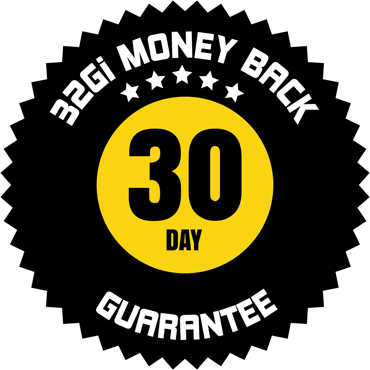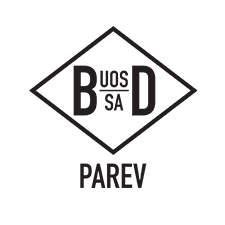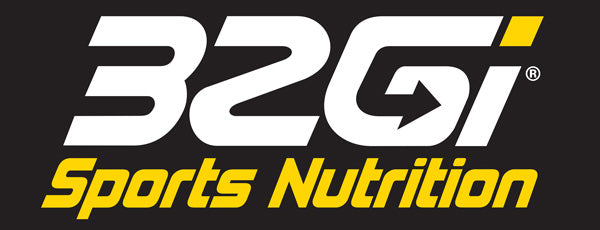With the Telkom 947 Cycle Challenge just over a month away, we look at nutrition around the event on this episode of 32Gi Sports Nutrition. This info applies to all road cycling events; but with the 947 as one of South Africa’s biggest, we tell you what you should be doing in preparation for the big day.Nutritional planning for the 947 Cycle Challenge.
Transcription:
Welcome back to 32Gi Sports Nutrition. I’m Mr Active David Katz and we’ve got a busy couple of months up in Gauteng in South Africa. Some great events across all different sports. One of the big ones there’s a huge cycle race we have here it’s newly titled the Telkom 947 Cycle Challenge. Massive numbers come out and do that and get to see and race around the streets of Johannesburg.
But also the triathlon scene is slowly starting to pick up again we’ve got the Olympic distance triathlon that Trinity Sports do put on. I’ll put a link to that, we have chatted to them about their events before. So these events around Trinity Sports triathlon a few weeks away. We look at 947 in about 5 weeks’ time.
We’ve talked about this in the past about getting it right. Getting your planning in place. Not just rocking up on the day and trying to fiddle with your nutrition. So Mark Wolff welcome back onto the podcast. I think that’s the big message you need to be planning and practicing what you gonna have on race day.
The biggest mistake you can make
MW: 100% Dave. I mean I stand at expos. Very often people come up to me and say I’m doing Cycle Challenge or doing Comrades or whatever event they’re doing. They haven’t prepared their nutrition and it’s the biggest mistake you can possibly make.
Nutrition needs to be very well thought of. I would say depending on the length of the event but definitely many weeks before hand. It needs to be practiced in training to make sure that the digestive system is comfortable with whatever nutrition you decide to use. But at the same time you need to make sure that it works for you that your energy levels more stable. That you feel good strong healthy during the event.
If you don’t plan it and you don’t test it out, that could be the biggest flaw for your event on the day. It can make or break, nutrition can make or break anybody. Doesn’t matter how fit you are. It definitely can break an athlete and prevent him from even reaching the finish line or even achieving a personal best.
Racing snakes can rely on liquid fuelling
DK: Mark looking at something like the 947 Cycle Challenge. I mean yes there a lot of guys who race very often. They at the front end of that race and the first few groups. They tend to know their strategy more.
But one of the great things about this race but there’s just as many people who maybe do that as their only race every year. For those sort of people it becomes probably even more important. Because they also cycling later in the day. They also gotta deal with the heat so that practice becomes imperative.
MA: It’s a very, it’s a very good point Dave but let me first off say that there are many different types of cyclist that would participate in that sort of an event. The same goes for a even triathlon and Olympic distance. Say you gonna get those who are gonna finish it very, very quickly. Under two and a half hours, come between two and a half to three hours.
That’s a very short event. Those are usually you know much stronger cyclists. People that really do understand their nutrition. For an event that’s short you don’t really need a lot of nutrition. You can basically pretty much rely on a liquid feed. You can pretty much test it out quite quickly or with some gels etcetera. I mean anything that just spikes your blood sugar. But that pace is very, very hard.
Slower cyclists can plan to eat real food
But as you mentioned now there’s a lot of people that do that event and that’s probably 70, 70 to 80% of the field that isn’t gonna do it in under three hours. You talking anywhere between three to maybe three and a half or seven hours, I’m not even sure what the cut off is.
But then you need to start thinking as nutrition is very, you know very differently as the way you think about it if you were a you know solid athlete. Because you might be on the road now for between let’s say four to six hours. There’s no ways you can actually take something that’s going to first of all impact your digestive system, because if it does you gonna land up in trouble.
There’s no reason to actually go and spike your blood sugar, because the time period that you on the road is quite a bit different. The other thing you need to focus on is, is probably real food. Like what are you gonna take and eat. Slower cyclists generally have the ability to breath a lot more controlled. They taking their time more social riders.
Whereas an elite cyclist is puffing and panting the whole way. So they would rely more on a liquid feed. Because they haven’t got time to chew and eat. Because they blocking their airways and they need to get oxygen into the system quite quickly.
But if you looking at more of a back packer cyclist or athletes they do have the ability to maybe even speak or to eat or to chew. Then they should probably go for more food solids. Things that are gonna maybe associate them a little bit better. Keep them feeling fuller for longer and provide them a little bit more stability when it comes to energy.
The other thing that you touched on is temperature there to the event. That’s something also very critical. First groups will go off at half past five in the morning and they’ll probably be finished by eight o’clock, they’ll be finished before 8 o’clock. So I mean you talking guys that are maybe riding two and a quarter hours. So they gonna start when it’s cool and they gonna finish still when it’s pretty cool. Temperatures haven’t’ changed.
How to plan your hydration for a long day out
But having said that some riders are gonna start at 8/9 maybe even 10 o’clock in the morning. They only gonna finish after lunch time. They gonna finish much later in the day when the temperatures are at their hottest. So they have to really think about how much fluid are they going to carry with them. Number one, make sure that they are hydrated beforehand.
One of the difficult things for these riders is that they still get up really early in the morning and their start is very late. So what do they do between getting up in the morning and getting to the start. If you getting up at 4-5 in the morning and your start is only at 9 o’clock. You’ve got whole five hours in which you need to actually nitrify yourself. Still have a proper pre-race meal. Hydrate yourself sufficiently before the event.
Then you need to focus on what you gonna take during the event from a nutrition and a hydration point of view. From a hydration point of view there’s only three things that I can stress you need to make sure that you drink to thirst don’t overdo it. You know I mentioned in one of the earlier podcasts you know things start to dehydrate is not gonna impact you significantly.
Most of the athletes would finish dehydrated. There’s definitely a loss of fluid if you had to weigh yourself before and after the event. You would see that there’s definitely a significant loss of fluid. It’s not gonna impact you severely. But don’t over drink.
Because that’s something that can really cause havoc with the system. Again how do you know if you hydrating sufficiently or not it’s something you should also try out during training. If you gonna start later in the day you should probably do some of your longer sessions at least one or two a week where you are going out late in the day. You actually acclimatising to the heat.
By acclimatising to the heat you understanding what your body’s going to do under those hot conditions. You will also understand is to how much fluids you need to take in under those hot conditions. If you can get a sort of rough estimate of how much you require during a training session you can take that then with you to your racing session. You should be okay on the day.
Watch out for too much sweetness when fuelling
DK: Now Mark if I mean we were talking about the back of the field the guys who can eat a little bit more solids. Yes, we all individuals and our stomachs can all handle different things. But in general what are the kind of things that work well for someone when they cycling in terms of solids, and what things should people look to avoid?
MW: Well look some people can’t eat while they training and some people can as you mentioned. You get some people that like a liquid feed some people that don’t. I think one of the things I wouldn’t take anything that’s too sweet if it’s over a long period of time. Because sweetness just gets sweeter and sweeter the pallet just becomes more and more sensitive, it’s absolutely bad. So especially after maybe four or six hours.
So maybe you wanna try and look at taking something that’s not as sweet or a food that’s not as sweet. Some people take a piece of biltong to chew or whatever to try and get in that non – sweetness. I actually when I’m going on a very long session my caffeine shots are very bitter. So I like to take the bitter in between to break the sweet.
Again if you are gonna go with solids make sure that those solids are what I call convenience food. Because you know it’s very well carrying a banana in your pocket. But if it’s in the sun for four hours. It’s really gonna turn to mush and it’s not going to be so pleasant when you do eat it. Try and find foods that are quite, I mean people sometimes take chocolates with them. Chocolates turn to liquid depending what the temperature is like.
Good solid food items to try while riding
So you don’t wanna also make a mess and have to worry about this make sure that the foods is convenience food. So you know you get a lot of bars out there. We’ve got food bars for example; they don’t melt in the sun. They hold their texture. They taste quite good. I find that I actually like to eat those when I’m doing a long session.
We’ve also got our chews which are quite awesome. They don’t melt under high temperatures. They’re not overly sweet. They taste really good and they’ve got a nice texture. They don’t get stuck in the teeth. So those are the things that you can look at. But again I mean you could take a sandwich with you. I mean you could take a fruit with you. Anything that you wanted that wouldn’t be significantly impacted by the heat of the day and would be convenient to consume.
I mean obviously you don’t wanna be sitting on a bicycle with groups and groups of people trying to play with wrapping and packaging. Trying to figure out a way to open up – it can be quite dangerous. Technically you also need a place to store these things. You know try and keep it simple and try and keep it as clean as possible.
Make sure that if you are going over a longer period of time don’t make it overly sweet what you are consuming try. Break up that sweetness, you can even try and you know tone down the flavour of an isotonic drink by, for example; we make a neutral flavoured drink which is quite nice. You can actually you know it’s got no flavour and a lot of athletes just make concentrate they use that as a tone down the sweetness of any of the other drinks. It works quite nicely. There’s lots of ways to do it.
There’s also you know you can also rely on some of the foods and drinks that they do offer on route of the course. There definitely is stuff on course. But you know a lot of the times there are chocolates and sweets and things like this. I would stay away from that stuff you know and maybe stick to if there is bananas at the station. Then maybe take a bite here or there if you are willing to stop on route and consume something natural. Because maybe that’s a little bit more palatable than taking something that’s overly sweet.
DK: Well Mark some valuable advice as ever. If you haven’t started planning, if you haven’t started testing your nutrition for the Telkom 947, there’s valuable advice. Start doing it now. But from Mark Wolff and myself Mr Active David Katz, we’ll catch up with you again next time.








